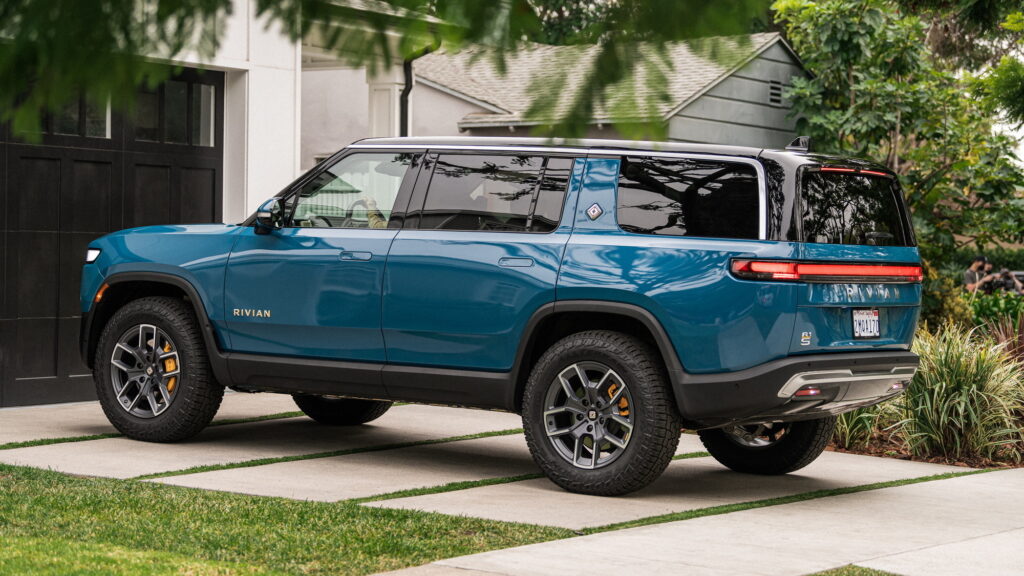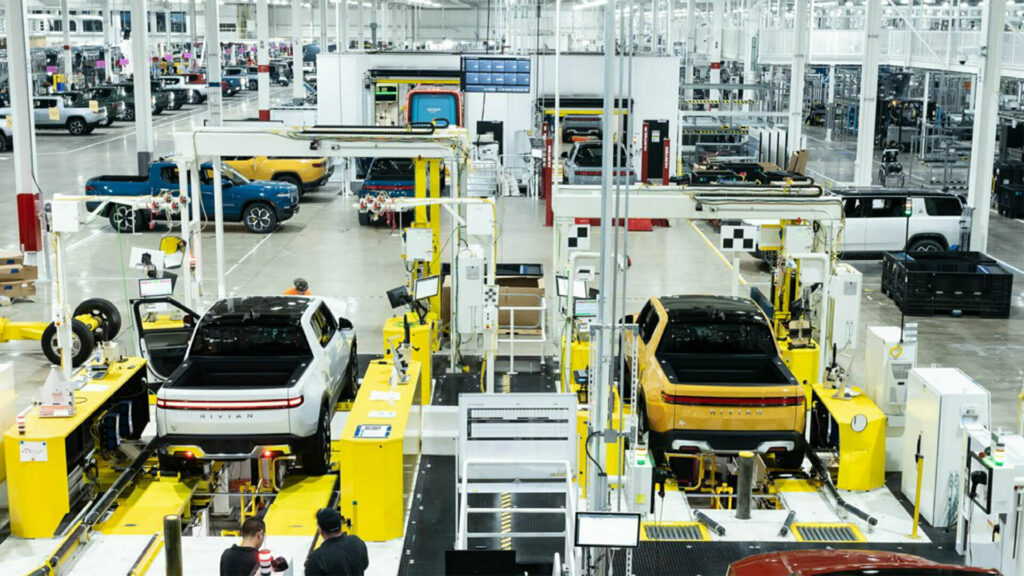Rivian is expected to ask those within its engineering team who work on manufacturing-related tasks to relocate to central Illinois or to the company’s headquarters in Irvine, California.
The Wall Street Journal reports that Rivian is looking to centralize more of its workforce in an attempt to accelerate production. An unnamed source reports that the COVID-19 pandemic saw Rivian hire engineers from around the country and had been allowing them to work remotely.
While it is not yet clear how many employees will be asked to move, it is understood that one of the teams being asked to relocate to the factory in Normal, Illinois is in charge of the design of the factory, including the robots that help build the EVs.
Read: McLaren Poaches Rivian Engineer To Take Over Chief Technical Officer Post

Obviously, Rivian cannot force any of its remote workers to move across the country so those that refuse to relocate will be offered severance and new engineers will fill their place.
“In terms of ramping production, it’s helpful to have the manufacturing and engineering teams closer to our facilities in Normal as well as our headquarters in Irvine,” a company spokesperson told Reuters.
Rivian chief executive RJ Scaringe has not commented on the report but has previously acknowledged a series of cost-cutting measures and noted the brand needs to bolster its short-term returns. One way to do this is to speed up the production of its various models. Scaringe’s revelation came after the car manufacturer spent $6.6 billion in cash last year and finished 2022 with $11.6 billion in cash.
Speaking on the issue of inefficiencies last November, Scaringe noted that it “isn’t capital efficient” to be building far fewer vehicles than its factory was designed to build.
Rivian currently employs 14,000 people and while it managed to do what many car startups have previously failed to do, namely actually commence production of two all-new models, parts shortages and other issues have resulted in a slower-than-expected ramp-up in production. It also recently delayed the launch of its second generation of vehicles to 2026.








